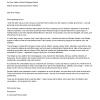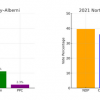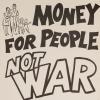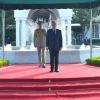An Open Letter to Mervyn King
As an epidemiologist reading the assessments of an economist suggesting that the former isn’t deterministic enough to be used for policy-making is at the least disingenuous. This is the same old crap that the tobacco industry claimed as epidemiologists untangled the relationship between cigarette smoking and lung cancer, not to mention other diseases. Do you see much asbestos used in construction in the UK? Ditto. Lead and neurobehavioral development. The chlorination of water. Let’s go to the clinical level, with hypertension and cardiovascular/cerebrovascular disease (the reason you have your blood pressure measured each time you go to the doctor), the use of Framingham scores to assess cardiovascular risk, oral contraceptives and stroke, thalidomide in pregnant women and phocomelia, and so on.
Perhaps the penultimate example from the UK is John Snow, an epidemiologist (member, London Epidemiological Society in the 1950s) who figured out that water was the vector for the spread of cholera and went so far as to remove the handle for a water pump in the middle of the outbreak. Notably, the following year, Snow was elected President of the London Medical Society, forerunner of the British Medical Association.
I will leave aside the role of epidemiology and predictive models, particularly the role of those models over the past three hundred years. Perhaps you should review the works in the mid-1800s by another epidemiologist, Edward Seaton on occupation and health—information used by Parliament in setting policies, and the same is true for Seaton’s work on smallpox vaccination, also used by Parliament for setting health policy.
Frankly stated, without an ability to model and predict, the value of epidemiology is much diminished. Peter Drucker famously noted that if one can’t quantitate, one is unable to assess and make use of information.
Perhaps in economics, a field which it is often observed has led its practitioners to predict nine of the past five recessions and whose ability to predict is so strong that even as national economic policies are based on it, Harry Truman pleaded for a one-armed economist because all the ones that he knew would respond to his questions on the economy with “On the one hand…and on the other hand…”
Perhaps economists feel uncomfortable in making predictions or feel that they can’t say much without noting a host of reasons why those analyses shouldn’t be trusted. In public health, in health departments, we unfortunately do not have that luxury. In economics, it’s money involved. That’s man-made, and as Kennedy noted, problems created by man can be solved by man. Life? There’s lots of uncertainties, sure. But physicians have to make life-and-death decisions (including whether to put Boris Johnson on a ventilator) without all the information to be deterministic all the time. That’s how physicians are trained.
But suggesting the epidemiology be discounted because it’s not predictive enough for an economist to think it be the basis of national policies? That thought bogles the mind.
David E. Lilienfeld, MD, MPH, MSEngin, FACE, FISPE
Foster City, California
USA
















